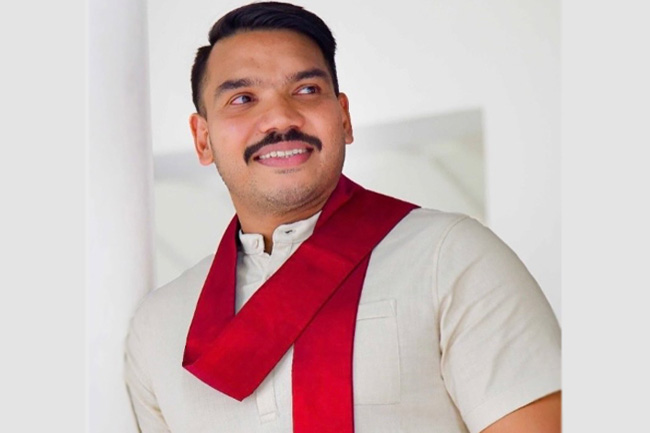Parliamentarian Namal Rajapaksa says Sri Lanka’s political culture is evolving and adapting to modern trends, with the era of family-based politics coming to an end.
Speaking during an online interview, Rajapaksa noted that unlike in the past, it is now rare to see multiple members from the same family engaged in active politics.
He said his political journey is distinct from that of his father, former President Mahinda Rajapaksa, emphasizing that while he may carry certain traits inherited through his father’s genes, his political role and approach are different.
“Today, we don’t see more than one person from the same family involved in politics. Occasionally, you may see two, like in this government — a father and son, or a husband and wife — in Parliament. But they are identified as party members, not as members of a political family. I too entered Parliament as a party member,” he said.
Rajapaksa added that family-based politics is no longer relevant to him, pointing out that he is currently the only member of the Rajapaksa family representing politics. “In this government, that may still exist, but not for me,” he said.
He also stressed that modern politics must adapt to innovation and contemporary thinking, noting that the entire world is shifting in that direction. Drawing comparisons, he said even in Pakistan, only one member of the Bhutto family — the son of former Prime Minister Benazir Bhutto — is now entering politics.
“Family politics was once a global trend, but that pattern has changed over the past decade or so,” he said. “Even in business, we rarely see sons continuing their fathers’ enterprises. The pattern has changed across generations, and we must understand that.”
Highlighting generational differences, Rajapaksa said, “My father’s political approach and mine are different because we are two different people. But I do carry the qualities inherited from his genes — and neither I nor anyone else has a need to change that.”




